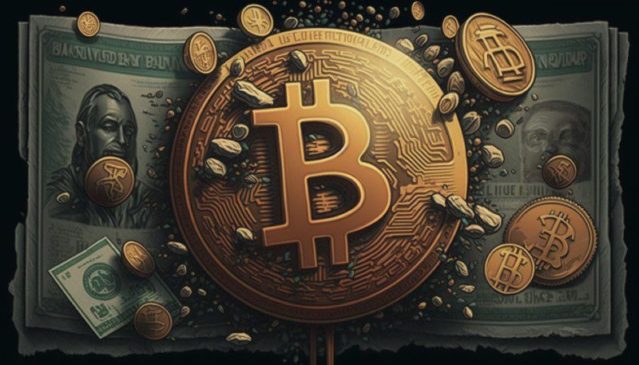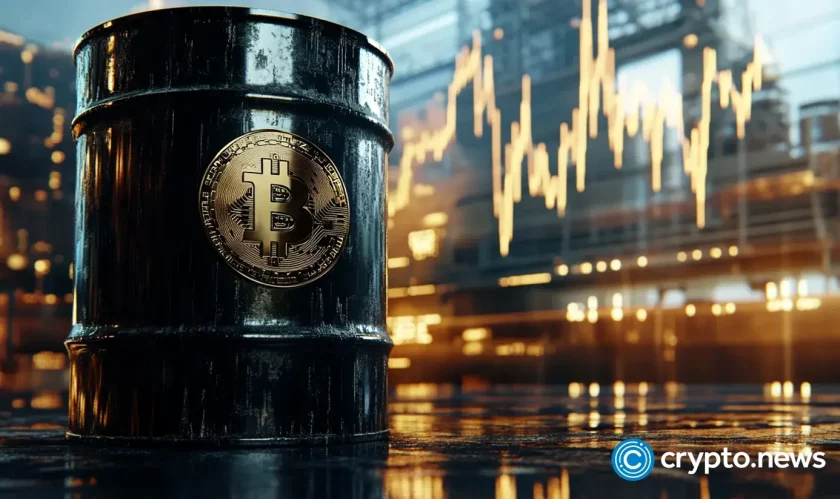Though it may not seem like it at first, money has undergone a lot of changes throughout its history. What once started as bartering and trade by early humans has transformed into the complex global economy that we know today. And while paper currency and coins have been the most popular forms of money for centuries, it seems that a new form of money is on the rise – Bitcoin.
Source – Moneysque
Bitcoin is a digital currency that was created in 2009. Unlike traditional forms of money, Bitcoin is not regulated by any central authority and is instead decentralized, meaning it is not subject to inflation or other economic fluctuations. Its proponents argue that this makes Bitcoin more stable and secure than other forms of money. Additionally, Bitcoin can be used to make anonymous transactions, which could revolutionize the global economy.
Though there are many advantages to using Bitcoin, there are also some potential drawbacks. For instance, because it is not regulated by a central authority, there is no guarantee that it will be accepted as payment by businesses or governments. Additionally, the value of Bitcoin can be volatile, making it a risky investment.
Despite these potential drawbacks, many believe that Bitcoin is the future of money. With its ability to resist inflation and its potential for anonymous transactions, Bitcoin could change the way we think about and use money forever.
The history of money and how it’s changed over time
The history of money is a long and complicated one. Its first use can be traced back to ancient China around 3000 BC, when people used beads made from jade and shells as a form of currency. In 600 BC, the first metal coins were minted in Lydia, a country in Asia Minor. And by the 9th century AD, paper money was being used in China.
The development of money has continued into modern times. In the 1950s, the first credit cards were introduced. And in 2009, Bitcoin, the first decentralized cryptocurrency, was created.
Bitcoin is different from other forms of money in several ways. Firstly, it is not regulated by any central authority and is instead decentralized. Additionally, Bitcoin can be used to make anonymous transactions, which could revolutionize the global economy.
Despite some potential drawbacks, many believe that Bitcoin is the future of money. With its ability to resist inflation and its potential for anonymous transactions, Bitcoin could change the way we think about and use money forever.
How Bitcoin is different from other forms of money
Bitcoin is often lauded for its potential to revolutionize the global economy. One of the key ways it could do this is through its decentralization. Unlike other forms of money, such as fiat currency, which is regulated by central authorities, Bitcoin is decentralized. This means that it is not subject to the whims of governments or financial institutions. Instead, it is controlled by its users, who can choose to buy, sell, or trade it as they please.
Another key way in which Bitcoin differs from other forms of money is its pseudonymous nature. When making a transaction with Bitcoin, users are not required to provide their personal information. This could have a number of advantages, including increased privacy and security. It also has the potential to allow for more efficient and secure transactions.
Additionally, Bitcoin is scarce, with there being a finite number of Bitcoins that can ever be mined. This makes it an attractive investment opportunity, as there is a possibility that the value of Bitcoin will increase over time. However, it should be noted that this scarcity also has the potential to create volatility in the market.
Despite these potential drawbacks, many believe that Bitcoin is the future of money. This is because it has a number of advantages over other forms of currency, including its decentralization, pseudonymous nature, and scarcity. These features could allow it to revolutionize the global economy and make transactions more efficient and secure.



